
 Flash News
Flash News
Car hits 9-year-old child in Pogradec
Two vehicles collide, 29-year-old dies in Tirana
Large fire in Radhimë, two bars near the beach are involved, a hotel is also at risk
Accident with 3 injured on the Kukes-Krume axis, 27-year-old arrested
The husband of Rama's former minister in Kosovo is arrested again
Migrant transfers to Gjadri camp resume, but under a new decree
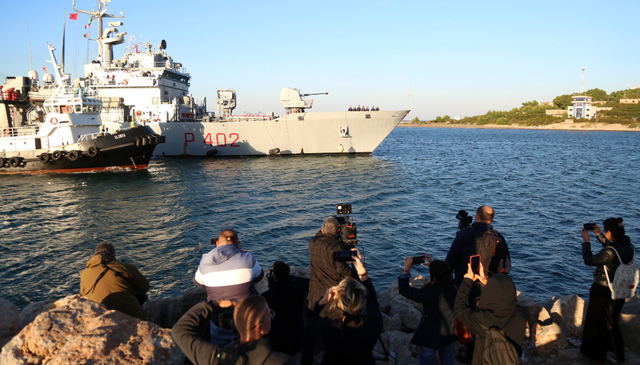
The Italian migration center in Gjadra is expected to receive its first group of migrants, following a new decree that redefined its function as a detention center only, sources told Euractiv .
Following the Italian government's decision on March 28 to repurpose one of Albania's migration centers into a full-fledged "repatriation detention center," the facility will now be used to receive migrants already present on Italian soil with a return order - an attempt to circumvent ongoing legal hurdles.
According to a list prepared by the Interior Ministry's migration department, the group to be transferred to Albania - possibly as early as this week - will include around 40 individuals, selected from various detention centers across Italy.
In cases where individuals are transferred from one detention center to another, there is no legal obligation to inform their lawyers or family members.
Initially, Italian-funded centers in Albania were set up to carry out rapid processing and deportation procedures for adult male migrants from so-called “safe countries” who had been rescued at sea. However, court decisions have so far blocked the full implementation of this model, hindering the centers’ operation.
While not located on Italian territory, the center will operate similarly to Italy's repatriation detention facilities - where irregular migrants can be held for up to 18 months pending identification and deportation.
Last week, the European Commission said it was aware of recent developments regarding the decree on the centers in Albania. According to the Commission, Italian national legislation would apply to these centers, "as has been the case so far with asylum."
"In principle, this is in line with EU law. We will continue to monitor the implementation of the protocol in its revised version and will remain in contact with the Italian authorities," a spokesman said.
According to the Italian Association for Legal Studies on Immigration (ASGI), the forced transfer of individuals already detained in repatriation centers across national borders marks "a paradigm shift", opening up "unprecedented scenarios in the European context".
The second facility in Shëngjin, with a capacity of over 800 people, will remain closed for the time being.
Its future now depends on a forthcoming ruling by the European Court of Justice, expected in May or June, which will decide whether fast-track procedures can legally be applied to migrants rescued at sea.
Before that, an opinion from the Advocate General of the ECJ - set to be delivered on Thursday - will provide a strong indication of how the court is likely to decide, even if it is not legally binding.
Latest news



Tobacco: 0% tax for freelancers, PD with a clear plan for the middle class
2025-04-17 19:07:05

Car hits 9-year-old child in Pogradec
2025-04-17 18:42:15
Alizoti accuses SPAK: It has failed in supervising the elections
2025-04-17 18:31:42
Mental health alert: Work without limits, mind under pressure
2025-04-17 18:09:04
Two vehicles collide, 29-year-old dies in Tirana
2025-04-17 18:01:45
Rama from Dibra: Half of Albanian men are syrians, the rest vote for the DP!
2025-04-17 17:55:58
Top Ukrainian, European and American leaders meet in Paris
2025-04-17 17:45:35
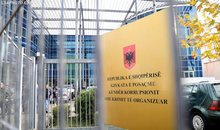
"Metamorphosis", the Court takes time on the way to judge the defendants
2025-04-17 17:24:50

Trump's tariffs could bring Putin closer to peace
2025-04-17 17:06:27
Accident with 3 injured on the Kukes-Krume axis, 27-year-old arrested
2025-04-17 16:41:24
The fires that are burning Albania
2025-04-17 16:36:38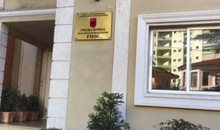

The husband of Rama's former minister in Kosovo is arrested again
2025-04-17 16:14:07
This is the country with the highest road accident death rate in the EU
2025-04-17 16:00:37

ECB cuts rates to 2.25% amid Trump trade war
2025-04-17 15:38:26

They hit the wife and mother, two arrested in Lezha for domestic violence
2025-04-17 15:13:15

Who is the new Prime Minister of Serbia, Gjuro Macut?
2025-04-17 14:43:03
Court hearing on 'Sterilization' case postponed
2025-04-17 14:40:04
Knife injury in Milot, caused by wrong overtaking
2025-04-17 14:33:42
William Levy released from prison
2025-04-17 14:16:25
Këlliçi: Rama uses sexist and offensive language towards women and girls
2025-04-17 14:05:30

Not a campaign, but a story/ Garo 'takes' ASHM candidates to another level
2025-04-17 13:41:08



Berisha: We are facing the philosophy of extorting businesses and citizens
2025-04-17 13:07:36
Fight breaks out in Tirana, 8 arrested, injured man hit with pistol butt
2025-04-17 12:57:23

Unjust dismissals from the administration, court decisions lingered
2025-04-17 12:29:59
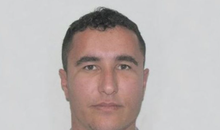
Nuredin Dumani threatens lawyer, "Golden Bullet" hearing interrupted
2025-04-17 12:13:18



With guns and cocaine, thieves flee from police, crashing into officers' car
2025-04-17 11:35:27



Iran says it is ready to address US concerns about its nuclear program
2025-04-17 10:56:49
Navigation of small craft and fishing vessels suspended
2025-04-17 10:45:32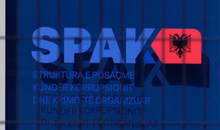
The hearing at the GJKKO for the "5D" file is postponed again
2025-04-17 10:33:43
Zeno's Arrow and Albania in the EU
2025-04-17 10:21:47
Teacher arrested for sexually harassing underage students in Librazhd
2025-04-17 10:07:07

Accusations of collaboration with Rama, Soros rejects comments to "Fox News"
2025-04-17 09:45:32
Foreign exchange/ How much foreign currencies are bought and sold today
2025-04-17 09:42:44
Electoral State/SP accused of misusing institutions for election campaign
2025-04-17 09:30:32

Last year, 20 operators were excluded from the right to win tenders.
2025-04-17 09:09:34
Two vehicles collide at the Tapiza Bridge, one woman dies
2025-04-17 09:01:26
7 tourists rescued after being trapped in Nivica Canyon
2025-04-17 08:41:31
Report: Albania, the only country in the region without industrial policies
2025-04-17 08:32:04
Horoscope, what do the stars have in store for you?
2025-04-17 08:17:21
Temperatures continue to remain high, weather forecast for this Thursday
2025-04-17 08:02:35
Morning Post/ In 2 lines: What mattered yesterday in Albania
2025-04-17 07:49:39

Rama will avoid taking stock at all costs, Berisha has a substantive campaign
2025-04-16 22:35:34


A cartridge at the scene and one injured, details of the shooting in Tirana
2025-04-16 21:34:33
Prices from Lushnja to Tirana, the trader earns more than the producer
2025-04-16 21:31:15


Berisha: Beketi refused to become Rama's slave, you pay 110 million euros now
2025-04-16 20:51:58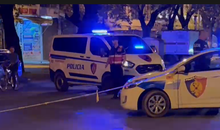
Gunfire at the Lake Dam in Tirana
2025-04-16 20:37:22

Accident in Kukës-Krumë, three injured after two cars collide
2025-04-16 20:25:23
Turkey hosts Black Sea security talks
2025-04-16 20:08:45



Mercury enters Aries on April 16: How it affects each zodiac sign
2025-04-16 19:13:37




BIRN: Tirana's "ghost" incinerator affair deflates in court like a soap bubble
2025-04-16 18:24:13


“450 new schools?” - When the electoral calculations don't add up
2025-04-16 17:17:44

Poll/ Which party do you plan to vote for on May 11?
2025-04-16 16:53:24
Doctors sound the alarm: Heart disease is increasingly affecting young people
2025-04-16 16:50:04
Serious in Germany/ Doctor accused of murdering 15 patients
2025-04-16 16:30:27
Knife fight in Kurbin!, three people injure a 30-year-old man
2025-04-16 16:25:36
Car hits Foreign Ministry official on white lines
2025-04-16 16:10:01


Organized gambling in a bar via mobile phone, 29-year-old arrested in Tirana
2025-04-16 15:36:30
Rama continues attacks on LaCivita
2025-04-16 15:26:41
